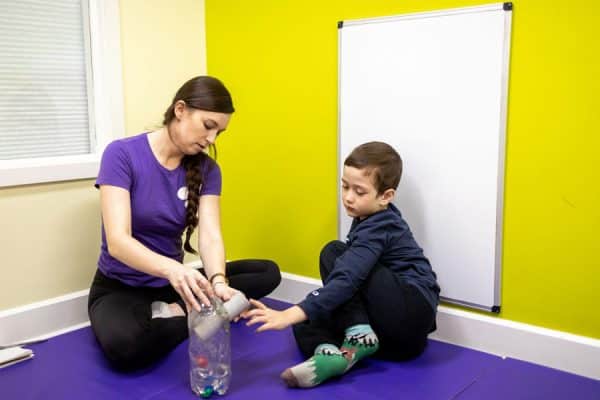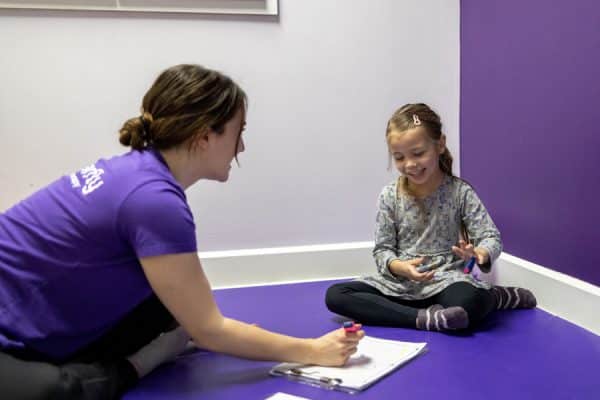If you feel that your child may benefit from support in developing their social interaction, play or communication skills, a Speech and Language assessment can be beneficial.
During the assessment, our Speech-Language Pathologists will gather a thorough case history including details about your child’s ways of interacting, playing and communicating with others. Depending on your child’s age and interests, the assessment may be play-based, with the clinician following your child’s lead during play with whatever interests them and informally assessing their social interaction, play and communication skills. For older children, it may also include more formal assessments to better understand your child’s social interaction and language skills.
Why Butterfly?
Our therapists recognize that ASD is not a deficit, but a unique way of seeing the world. We value all of our autistic clients as their true selves, and we understand that building on a child’s strengths and interests is the best way to help them reach their full potential.
Treatment plans may target a variety of skills, including: further developing your child’s engagement and social interaction skills (e.g., turn-taking, requesting, commenting); building your child’s ability to imitate actions, sounds and words; helping your child develop their receptive and expressive oral language skills (either through
traditional language approaches or approaches to support
Gestalt Language Processors); building your child’s sense of self-identity and their self-advocacy skills; helping your child navigate the rules and conventions of conversation; or supporting them in further developing their social-emotional and social problem-solving skills.
Our Speech-Language Pathologists may find that your child may also benefit from
Occupational Therapy and can connect you with the OT team here at Butterfly. Our Occupational Therapists are trained in working with autistic children with a wide range of strengths and challenges. They offer assessment and treatment services in a variety of areas that are commonly associated with differences in functioning for autistic children, such as sensory integration difficulties, feeding and play skills.


